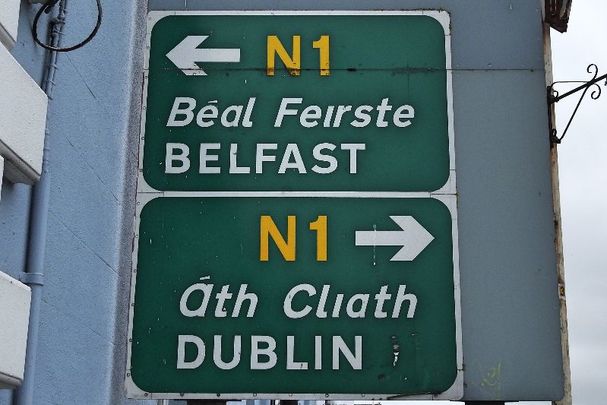A new report has claimed that a united Ireland would cost between €8 billion and €20 billion for the first 20 years.
The report "Northern Ireland Subvention: Possible Unification Effects" was published by the Institute of International and European Affairs (IIEA) on April 4.
Co-authored by Professor John Fitzgerald and Professor Edgar Morgenroth, the IIEA study examined subvention (the shortfall between taxes and the amount spent on public services) in Northern Ireland in 2019, discounting 2020 and 2021 due to distortions caused by the pandemic.
The report concludes in part: "Even though Ireland has a much higher national income, funding the needs of the people of Northern Ireland in a united Ireland would put huge financial pressure on the people of Ireland, resulting in an immediate major reduction in their living standards."
Speaking with RTÉ Morning Ireland on Thursday, Prof Fitzgerald explained how they arrived at the figure of €20 billion.
"In 2019, the central government in London had to transfer €11 billion to Northern Ireland to pay for health and education and so on.
"So there's a gap between the revenue in Northern Ireland and the expenditure.
"The gap would be somewhat smaller in the case of unification because the British Army costs a lot - it would knock just about €1 billion off the cost, so you're down to €10 billion.
"Also, welfare payments and public sector pay rates are dramatically lower in Northern Ireland than in the Republic. You couldn't really have unification and have the poor cousins up North pay two thirds of what they are in the South, so that would cost €10 billion to equate social welfare payments and public sector pay."
When asked what the impact would be on the economy, Prof Fitzgerald said: "Well, if you have to find €20 billion, that's a third of a bank bailout every year. It's a lot of money, so it would be very expensive.
"The solution is if Northern Ireland dramatically changes how they run their economy, particularly in the education sphere, which would mean that the gap between the North and the South would narrow and also that their revenue would rise substantially more.
"But, changing education takes time. It would take probably about 20 years before they caught up."
Prof Fitzgerald acknowledged that there has been a lot of debate and a series of papers surrounding the subject.
The new report has faced some criticism.
Speaking on Today with Claire Byrne on RTÉ Radio on Thursday, Sinn Féin TD Padraig MacLochlainn disputed the methodology "as a static analysis."
He said: "Professor John Doyle of DCU, in recent times, has written that the actual subvention is much less. It's about €2.4 billion, it's about a quarter of what the British government, when you deduct their pensions, debt repayments, contribution to the defense forces of Britain, and so on.
"So it's much less than the headline figure.
"But also, the report assumes there'll be no economic growth in the North. We know that since Brexit there's been substantial growth in the All Ireland economy. We know that there is a real opportunity, and that's thanks to the efforts of all of the political parties and people on the island of Ireland.
"We ensured there is no hard border on the island of Ireland. That means that the people of the North of the Ireland have access to the British economy and the European economy uniquely.
"So there's a real opportunity for economic growth."
MacLochlainn added: "What do I praise is doing some type of research, some type of planning, some type of analysis which is very different from our own government who have no plan whatsoever to look at how we get to Irish unity."




Comments